Unstoppable
Chess concluded its historic debut at the 2025 Esports World Cup on Friday, with Magnus Carlsen emerging as the tournament’s first champion. The Norwegian grandmaster, representing Team Liquid, defeated Alireza Firouzja in the Grand Final with a composed and dominant performance, taking home the $250,000 first prize. His victory also pushed Team Liquid to the top of the overall standings, at least temporarily, in an event that still has several competitions to come – including Crossfire, Street Fighter and Counter-Strike – over the course of its seven-week schedule.
Carlsen’s route to the title began with a flawless group stage, where he defeated Nodirbek Abdusattorov and Jan-Krzysztof Duda. In the knockout rounds, he overcame Nihal Sarin in the quarterfinals and survived a close call against Hikaru Nakamura in the semifinals before facing Firouzja for the title. Of all his opponents, it was Nakamura who proved the most difficult, taking Carlsen to a sixth game and then to Armageddon in a thrilling showdown.
The Classical Sicilian has stood the test of time as one of the most principled and fighting defences against 1.e4. With its rich history spanning world championship matches and modern elite tournaments, this opening remains a favourite among players who seek a dynamic, counterattacking approach without venturing into extreme theoretical battles like the Najdorf or Sveshnikov.
Free video sample: Introduction
Free video sample: 6.h3
After his win, Carlsen – who stepped away from the classical World Championship cycle in 2022 and has frequently criticised traditional formats – expressed appreciation for the tournament’s structure and presentation, noting:
It’s been an amazing show, unlike anything that I’ve seen so far. It’s just been a joy, and I really hope that this is a big part of the future for chess.
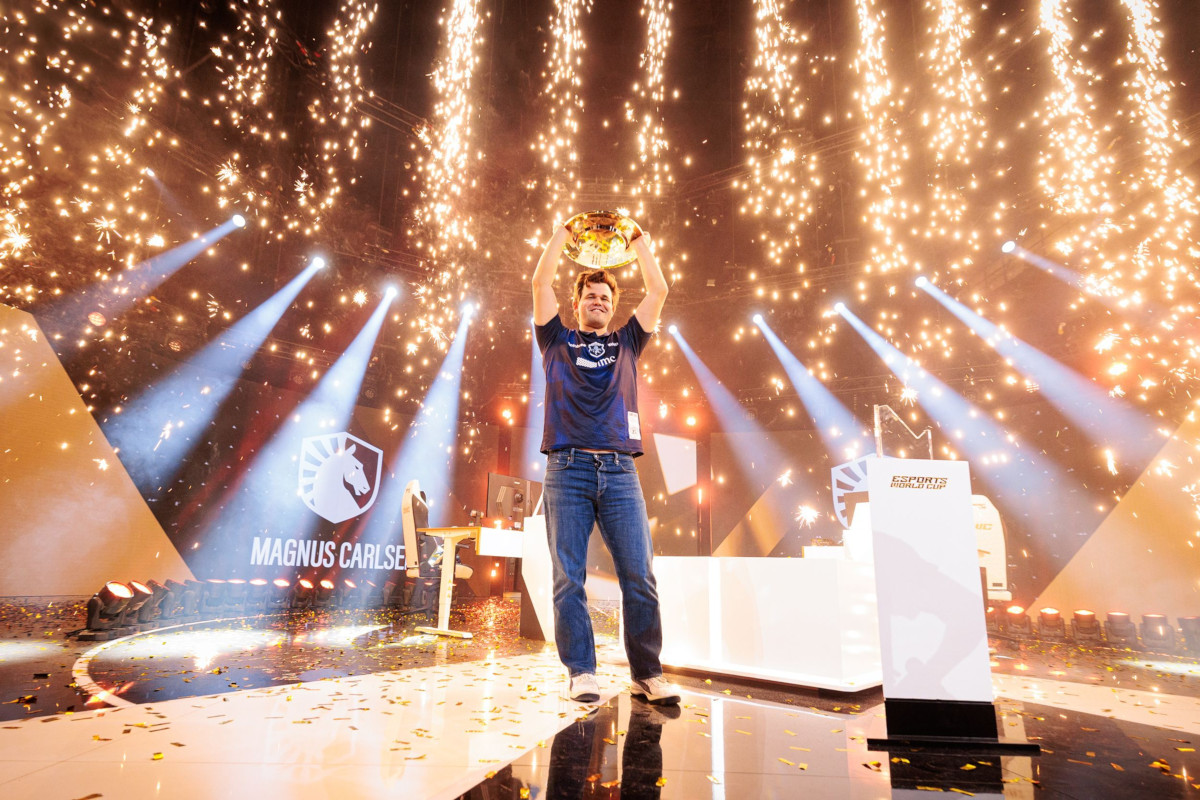
Magnus Carlsen lifts the winner’s trophy in a spectacular setting
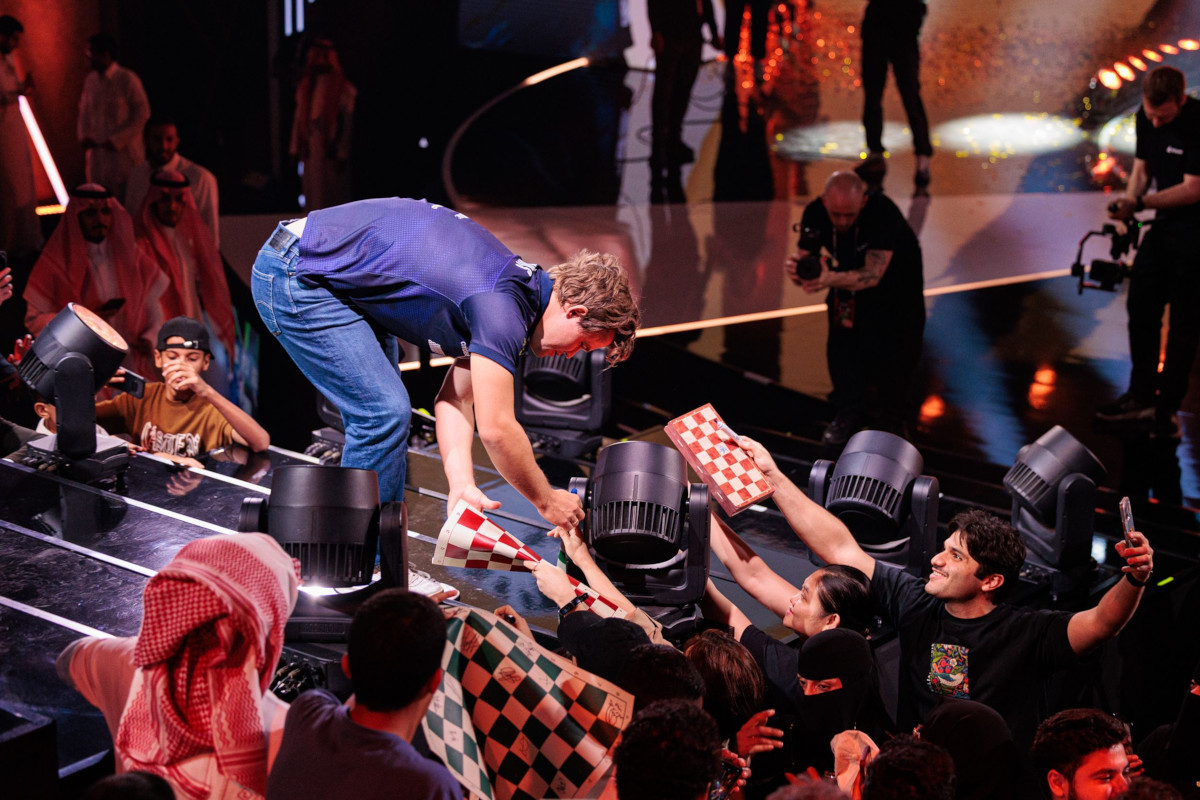
Fans in Riyadh asking for their chessboards to be autographed by the champion
The Grand Final: Carlsen v. Firouzja
The Grand Final match was played in a best-of-three sets format. Each of the first two sets featured four 10-minute games without increment, while the potential third set would consist of two games, followed by a bidding Armageddon only if necessary. In the end, neither the third set nor any Armageddon tiebreakers were needed, as Carlsen scored back-to-back 3–1 wins in the first two sets to secure the title.
Carlsen appeared in full control throughout the match, not only on the board but also on the clock. Aware of the absence of increment, the Norwegian made a clear effort to play faster than his opponent, which paid off repeatedly. Firouzja, often low on time in critical moments, misplayed positions under pressure.
The match opened with a remarkable moment in game one of the first set.
Firouzja, underestimating the danger, played 21…Qa3, allowing Carlsen to execute one of the most striking tactical sequences of the event: 22.Nb8 trapped the black rook, as after 22…Rfxb8 23.Qxb8 Rxb8 24.Rxb8+, Black would be forced to give up the queen with 24…Qf8. Firouzja opted instead to give up the exchange at once, but he remained worse and resigned on move 45.
Games two and three ended in draws, though each player held some chances with the black pieces. That left Firouzja needing to win game four with white to stay in contention for a victory in the first set. He played ambitiously out of a Giuoco Piano, but Carlsen neutralised his initiative and took over once Firouzja began to over-extend. Moreover, after 29.Qc4, Carlsen found a crisp tactical sequence to win the game quickly.
There followed 29…Bxf2+ 30.Kxf2 Nd3+ 31.Ke3, and the knight on g3 is undefended. Carlsen grabbed the loose piece by 31…Qxg3
In this insightful video course, Grandmaster David Navara shares practical advice on when to calculate deeply in a position — and just as importantly, when not to.
Free sample video: Introduction
Free sample video: Invisible moves
With the white king exposed in the centre, Firouzja’s position collapsed soon after.
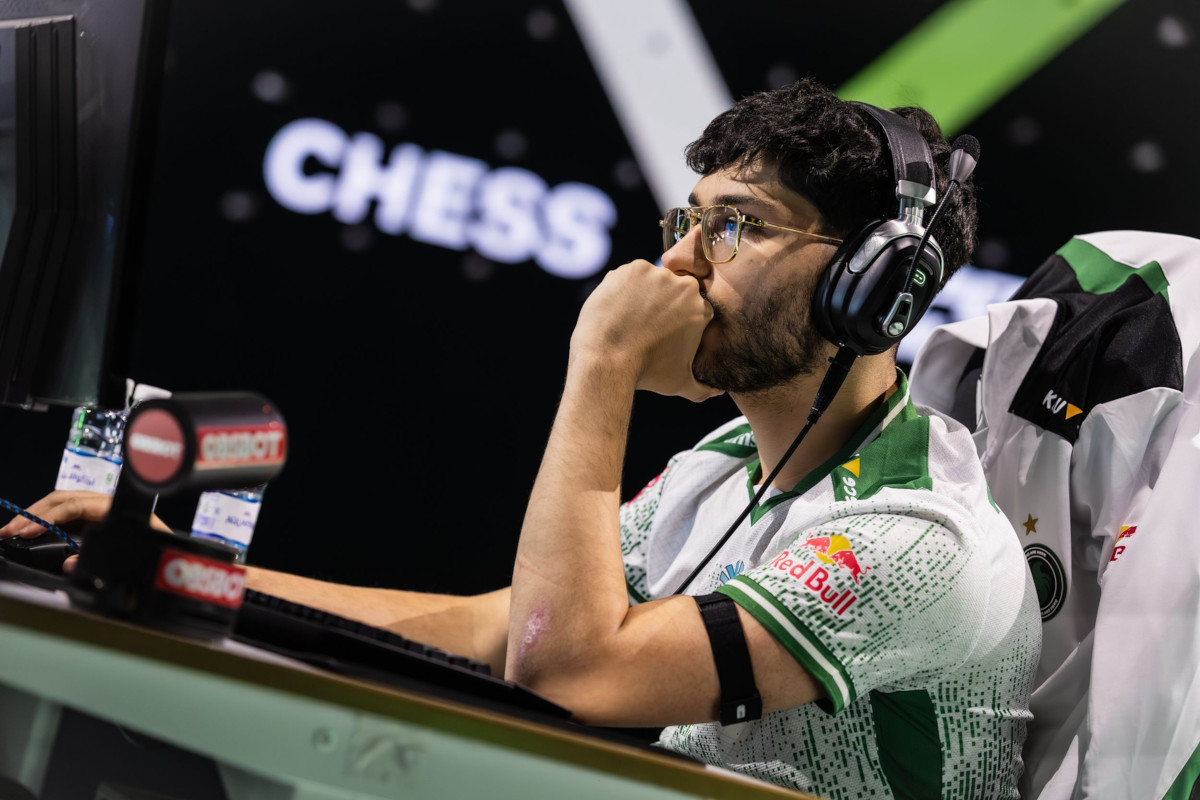
Alireza Firouzja
The second set began differently, with Firouzja striking first. Carlsen miscalculated in the middlegame and Firouzja punished the error effectively, converting the point to get on the scoreboard. That marked Firouzja’s only win of the match.
Carlsen, however, bounced back immediately in game two, winning convincingly after creating long-term pressure and capitalising on a key error. Firouzja, down to just 11 seconds compared to Carlsen’s nearly two minutes, blundered with 59…Kf8, allowing 60.Rh7
The bishop is trapped. Even though the position remained favourable for White, the huge time deficit made defence nearly impossible.
Game three saw a similar story. Carlsen again gained the upper hand, while Firouzja burned too much time in the middlegame. As the position grew more difficult, Firouzja was unable to hold, and Carlsen took the lead in the set.
The fourth game, once again a must-win for Firouzja, followed the same pattern as the end of the first set. Carlsen played solidly and allowed Firouzja to take the risks. As Firouzja pushed to complicate matters, his position deteriorated. Carlsen converted his third consecutive win to end the match with a 2–0 set score and claim the Esports World Cup title.

Magnus Carlsen gesticulating during the final match
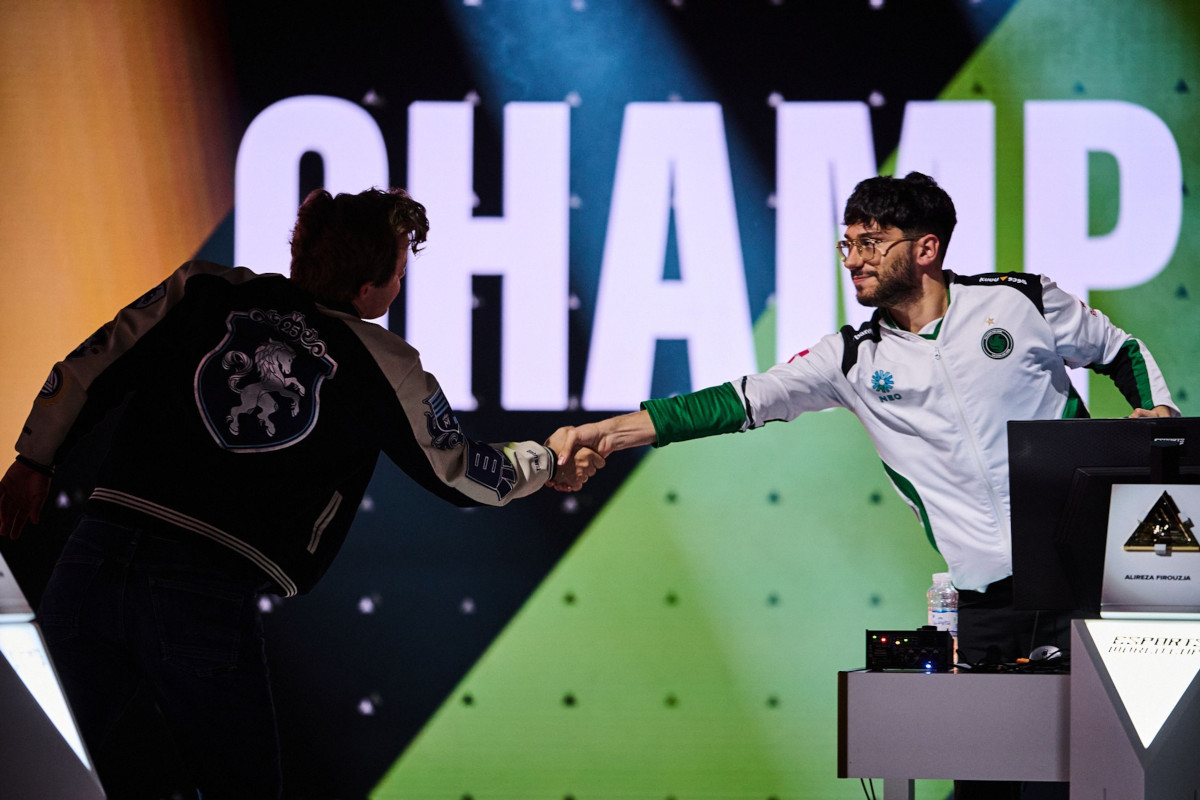
A handshake between two worthy contenders
All games – Grand Final
Third-place match: Nakamura v. Arjun
Earlier in the day, Hikaru Nakamura and Arjun Erigaisi played a six-game match to decide who would finish third and take home a $145,000 prize, instead of the $115,000 reserved for fourth place. It was a back-and-forth battle that could have gone either way and featured numerous shifts in momentum.
Arjun got off to an ideal start, winning the first game with white in just 34 moves. Nakamura failed to pose any serious problems, and the Indian grandmaster converted cleanly. Game two ended in a draw after 28 moves. Nakamura then found his rhythm in game three, equalising the score with the black pieces after outplaying Arjun in a sharp middlegame.
In game four, Nakamura showed excellent endgame technique. With two rooks and four pawns against a rook, bishop and five pawns, the famed streamer converted the favourable endgame with precision.
Engines evaluate this position as close to equal. However, Nakamura had 1 minute and 35 seconds to Arjun’s 55 seconds here. It was not surprising that Arjun later faltered while defending a tought position with little time (and no increments).
Nakamura took the lead 2½–1½. Arjun now needed a win in one of the final two games.
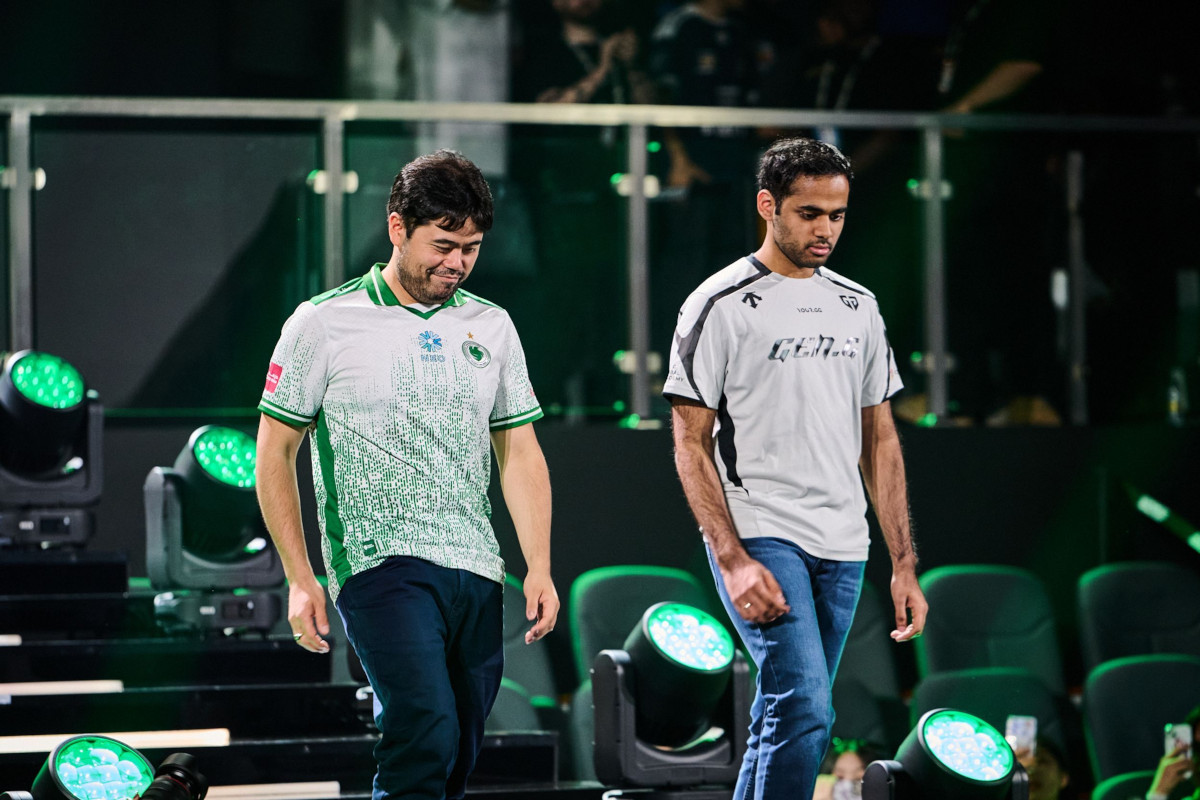
The contenders enter the playing hall
Game five was crucial. Nakamura gave up a piece for attacking chances against Arjun’s exposed king, but both players made critical errors. In a position which engines consider to be favourable for White (Arjun), the Indian grandmaster faltered with 29.Rd2
Nakamura, however, missed the winning 29…Bb4, which would have created overwhelming threats connected to …Rf8-f2+. Instead, Nakamura immediately went with 29…Rf2+, allowing White to escape via 30.Kd1 Rf1+ 31.Kc2
With his king out of danger, Arjun consolidated and forced resignation a few moves later, tying the match at 2½–2½.
The sixth and final game was played under severe time pressure, with both clocks dipping under 30 seconds in the final phase. Nakamura gained a pawn and entered an endgame with rook, knight and two pawns against rook, knight and one pawn. The position was objectively drawn, but Nakamura had a freer hand and kept posing problems. Arjun made the decisive mistake with 79…Kh6
The king move allowed 80.Kb5 Rc7 81.Rd6, pinning the knight on e6, winning material now that the black monarch is too far away to defend the knight. A passive move like 79…Rc1 would have prevented the pin. Even so, it was likely that Nakamura would have flagged Arjun if the game had continued.
Facing the Sicilian doesn’t have to be complicated. The Alapin Variation (1.e4 c5 2.c3) offers a simple yet highly effective solution to all major Sicilian lines, by sidestepping them with 2.c3. Whether your opponent plays the Najdorf, Taimanov, or Dragon, the Alapin lets you take control of the game as early as move two.
Free video sample: Introduction
Free video sample: 2…g6
The five-time US champion later remarked:
I got back to my roots, and I was able to run my opponent out of time. It’s a nice win, not the way I wanted it, but I’ll take it.
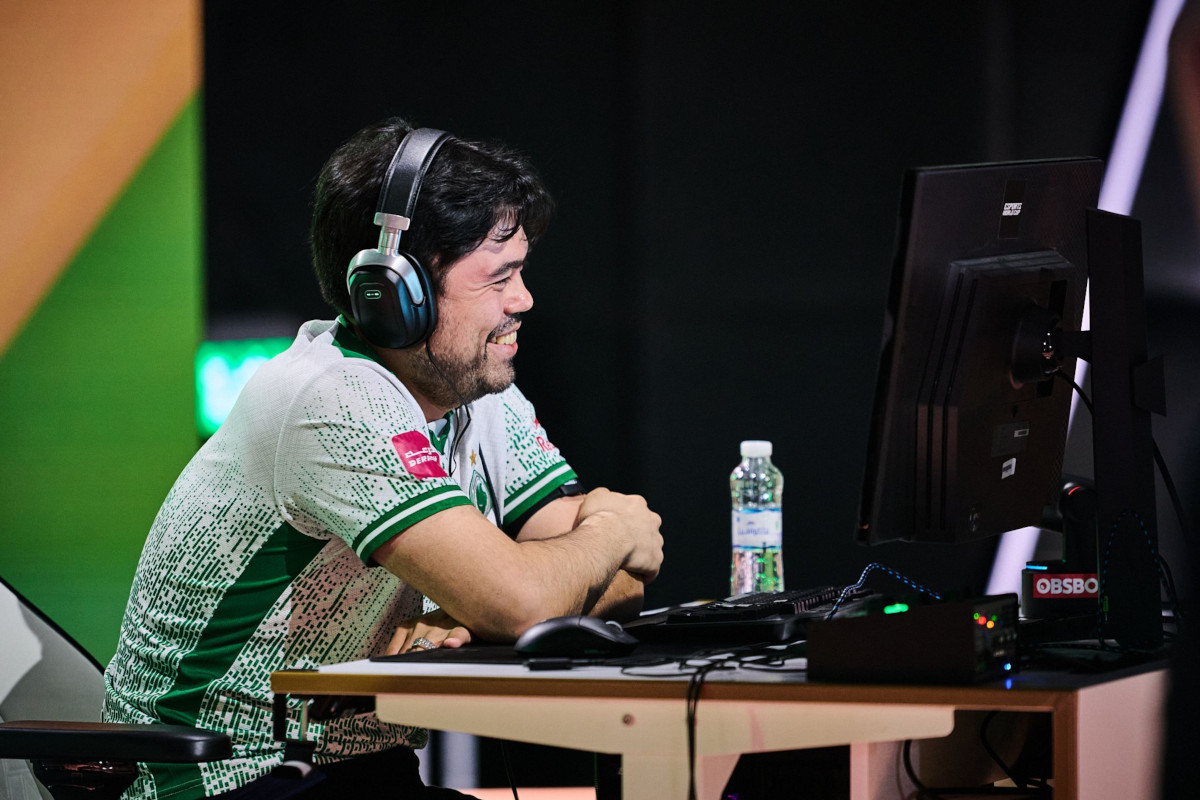
Hikaru Nakamura
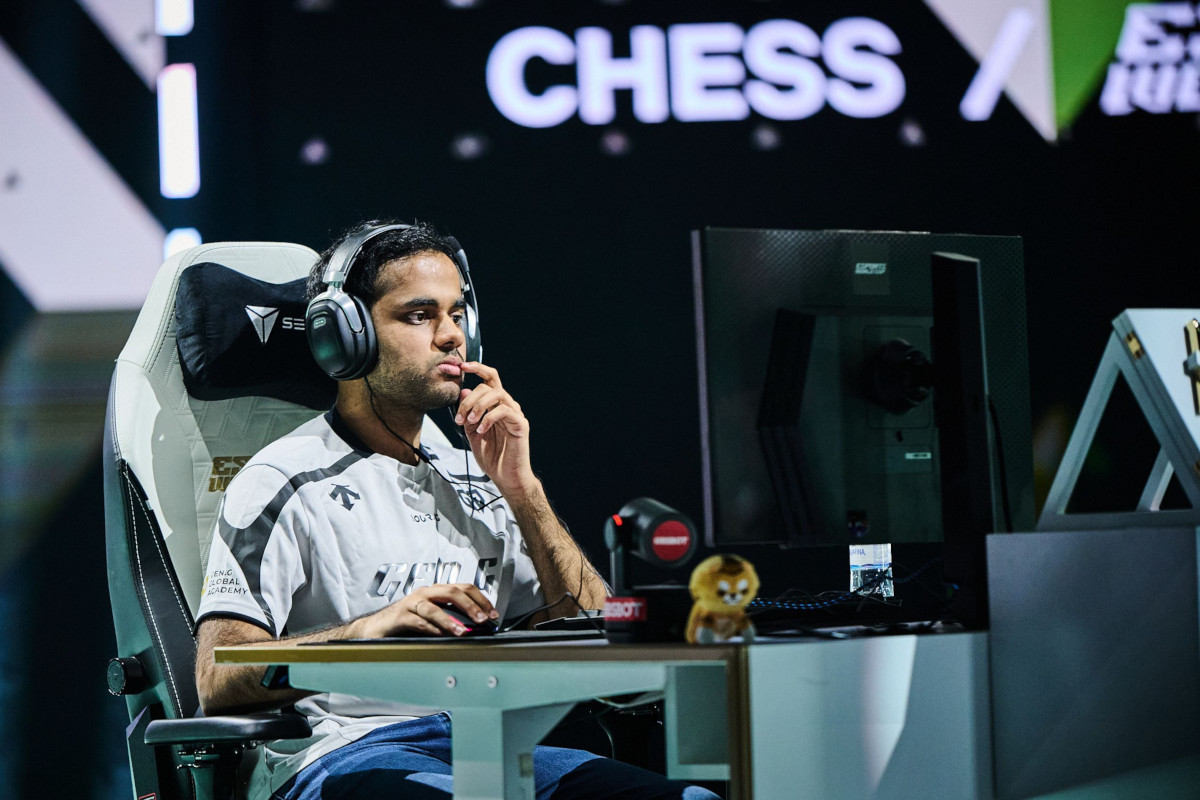
Arjun Erigaisi
